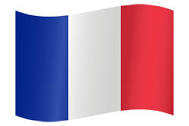






Sarkozy gets 5 years in prison in Gadhafi case
The former French president was accused of accepting illicit campaign donations from the Libyan dictator.
PARIS — Former French President Nicolas Sarkozy was sentenced to 5 years in prison after being found guilty in a case relating to whether his 2007 presidential campaign received illicit donations from Libyan dictator Moammar Gadhafi.
The 70-year-old had been expected to avoid prison time by appealing the verdict, which would have pushed back sentencing until after the appeal trial.
However, the presiding judge in the case, Nathalie Gavarino, ruled that the seriousness of the charges warranted Sarkozy’s imprisonment regardless of an appeal — meaning he will likely become the first modern French president to end up behind bars.
Sarkozy’s predecessor, Jacques Chirac, received a suspended prison sentence after being found guilty of corruption more than a decade ago.
While Sarkozy will walk out of court following Thursday’s verdict, it is only to give him time to get his professional affairs in order before formal sentencing.
Sarkozy said he would appeal after stepping out of court with his wife, Carla Bruni. He addressed the media with a smile despite the circumstances, saying he would respect the verdict even though it was “extremely worrying” and a threat to public trust in the justice system.
“If I must sleep in prison, I’ll sleep in prison, but with my head held high. I am innocent. This injustice is a scandal” he said.
After Sarkozy finished speaking, Bruni took the cap off the microphone from investigative outlet Mediapart — which first broke the Sarkozy-Libya story — and tossed it to the ground.
Nine defendants were convicted alongside Sarkozy, while three others were acquitted.
Sarkozy was found guilty of taking part in a criminal association but was cleared of corruption charges after Gavarin found that he had permitted his “close collaborators” and “unofficial intermediaries” to try “to obtain or attempt to obtain financial backing for his campaign” for the presidency between 2005 and 2007.
Those attempts included “meetings with Gadhafi’s official representatives” and “arranging transfers of public funds.” The court however said it could not establish with certainty that Libyan money reached Sarkozy’s campaign coffers.
Sarkozy was acquitted of the corruption charge because Gavarino ruled there was no proof he worked to implement a supposed deal struck by his associates — including future Interior Minister Claude Guéant — and Abdullah Senussi, Gadhafi’s brother-in-law and former intelligence chief, in 2005. Guéant was found guilty but escaped prison time due to poor health.
Gadhafi’s regime was reportedly seeking a pardon for Senussi, who was convicted and sentenced to life in prison in France for his role in the bombing of a flight from Brazzaville, the capital of the Republic of Congo, to Paris in 1989. All 170 people on board were killed.
Gavarino concluded there was enough evidence that such a meeting took place and that Sarkozy’s team had pledged to review Senussi’s file — even without a guarantee of a pardon — and to normalize diplomatic relations with Libya before the election.
Before Thursday, Sarkozy had repeatedly professed his innocence and claimed to be the victim of a smear campaign coordinated by Gadhafi’s allies after the former French president led the NATO effort to overthrow the Libyan dictator in 2011.
Sarkozy was joined in court by Bruni and his three sons: Pierre, Jean and aspiring politician Louis. While the conservative has had repeated run-ins with the law since leaving office — including one corruption case in which he was found guilty and has exhausted his appeals — the Libyan case contained the most egregious charges and heaviest potential penalties.
Despite his legal troubles, Sarkozy has remained an influential figure on the French right. He met with new Prime Minister Sébastien Lecornu shortly after his appointment earlier this month and with Jordan Bardella, the president of the far-right National Rally, in August.
Reference: politico:September 25, 2025 10:58 am CET:By Victor Goury-Laffont
